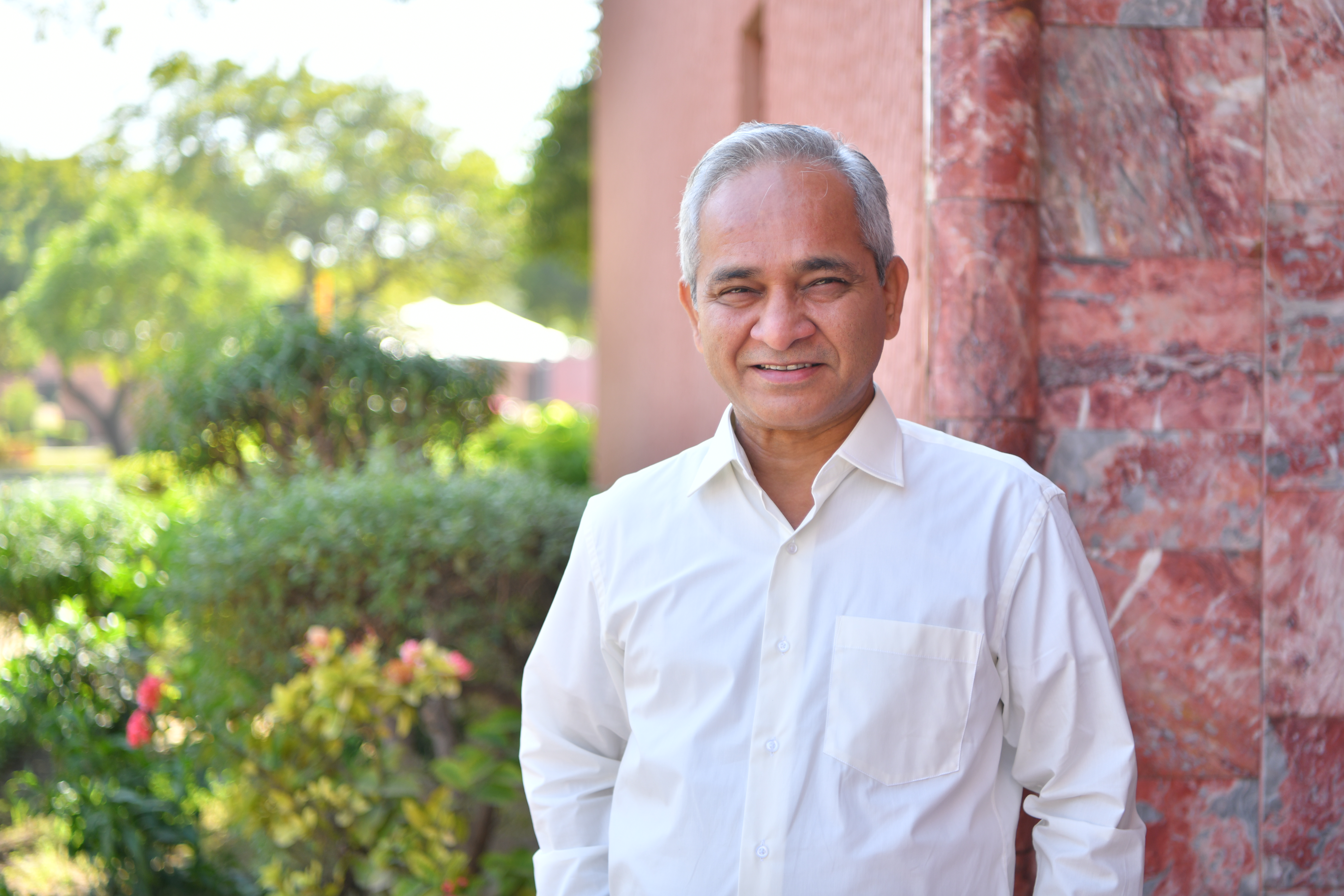Environmental Research – Dr Zafar Fatmi
Dr Zafar Fatmi is a Professor and Section Head, Environmental, Occupational Health and Climate Change, at the Department of Community Health Sciences at AKU.
What is your background and how did you personally become interested in sustainability?
I joined the field of public health in 1997 but started working on environmental health issues since 2003 onwards. Sustainable development is not a new concept – even when I was a student, we learned about it. However, it became mainstream with the climate change impacts becoming more frequent and more visible. It is now becoming more and more clear to everyone that we need to do something about it. We are still far behind in action, but at least there is a sense of urgency and awareness.
If you ask me what is stopping us from really taking action, I would say our need for comfort and systemic resistance. We all need air conditioners and cars and things that add to our convenience. So, changing our lifestyle requires some commitment not only at the individual level but also at the institutional and the larger systemic level. Sometimes an individual may be motivated to do something, but the immediate enabling environment is not there. So, you have no choice but to comply with the (unsustainable) systems in place in the wider society. We also need to keep improving the knowledge or awareness level (make it as simple and palatable for the masses) in order to inspire action.
What is something you're currently working on or aspire to work on?
At the personal level, I’m planning to install solar energy system at my house that I built last year. It requires a significant capital cost, but I’m committed to making it happen. At the department level, we have reorganized a climate change and environmental health course for graduate level students. For undergraduate medical students, we have a climate change and environmental health module with practical activities and tutorials. These are to raise awareness among the students and build their capacity for undertaking research and interventions. We also conducted a workshop on climate change and health for professionals earlier this year, which we plan to run on a regular basis.
On the research front, it is a very slow process, unfortunately because it is funding driven. One of the other challenges we face doing research on climate change is the availability and capacity to analyze and interpret large data sets, especially ones reflecting local conditions.
We have been thinking about developing a knowledge management center on sustainability topics, but this requires a lot of resources, collaboration, and expertise. One exciting thing we are currently working on is to explore the impact of heat on the health of outdoor workers (food and package delivery personnel) and the steps they take (if any) to reduce their exposure and emissions? For example, by optimizing the routes.
What is an achievement that you're proud of?
More than 50% of the population of Pakistan still uses biomass energy for household cooking and heating. This has many different impacts such affecting the health of women and children and impacts on soil and tree cover. We intervened with our research and helped Aga Khan Planning and Building Services (now part of the Aga Khan Agency for Habitat) to assess the health and emissions impact of an energy-efficient, low-carbon emission stove that they had developed. Developing capacities and raising awareness at the policy level is one of the things I'm very proud of. Furthermore, we recently tested another stove in the district of Thatta which is a hybrid stove and uses solar as well as biomass.
Currently, we are researching the link between climate change and ambient air pollution. Our ongoing study looks at how climate variables impact air pollution, particularly in the cities of Lahore and Karachi.
What is your daily or personal inspiration?
For me, it is the challenges I see around me every day. Here, the scale of the challenges is so large that anything you do would have a very high impact on improving the lives of people. That is my drive and motivation to keep working in Pakistan.
What makes you hopeful about your work and the future of sustainability at AKU?
The Sustainability Office, the net zero goal, the commitment from central leadership – all of this gives me a lot of hope. It shows that we are serious about addressing climate change. We are not just a hospital or just a university. We are an institution that is concerned about the larger issues which confront us and are committed to playing our part in solving them.

Dr Zafar Fatmi
|

